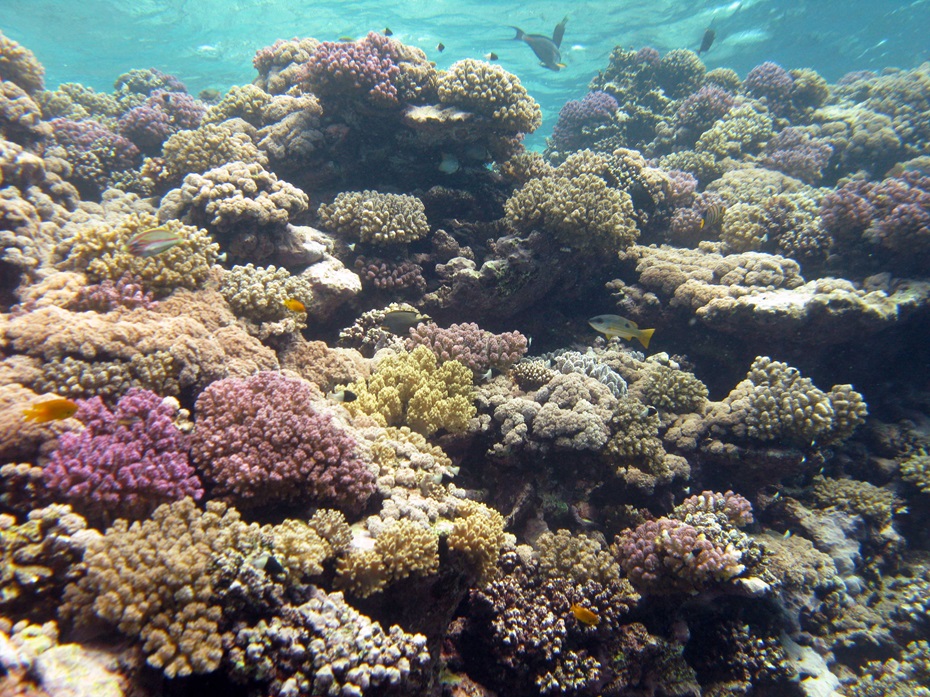
Project Details
Program
Marine Science
Field of Study
Marine Science, Benthic Ecology, Coral Reef Ecology, Phycology
Division
Biological and Environmental Sciences and Engineering
Faculty Lab Link
Center Affiliation
Red Sea Research Platform
Project Description
Coral reefs are ecologically important ecosystems that are threatened by local human impacts, such as nutrient pollution and overfishing, and by global environmental change, such as ocean acidification and ocean warming. As a result, coral reefs have been in decline across the planet. In order to understand the future for coral reefs in the Red Sea, we must first understand the current status of reefs along the coast of Saudi Arabia, and then identify potential impacts of various environmental stressors. The goal of this project is to contribute to the broader research goals of the Global Change Ecology lab at KAUST, under the supervision of Professor Maggie Johnson.
We are seeking students interested in studying coral reef community structure and function in present day conditions, monitoring how reefs in the Red Sea are changing over space and time, and contributing to field and lab experiments that aim to identify impacts of different environmental stressors on key reef species. This research presents the opportunity to develop projects tailored to the specific interests of students. Examples of possible projects include, but are not limited to, quantifying the cover and health of corals and algae on central Red Sea coral reefs, deploying instruments and analyzing data to evaluate variability in important environmental parameters (temperature, pH, dissolved oxygen), and conducting targeted field and lab experiments to identify effects of warming temperatures (or changing pH or dissolved oxygen) on calcifying algae and corals. This is an exciting opportunity to contribute to ongoing work and to develop new research projects in the area of human and environmental impacts on coral reefs. The Global Change Ecology lab is committed to building an inclusive community and research environment and encourages applicants from all walks of life.
About the Researcher
Maggie Johnson
Assistant Professor, Marine Science
Education Profile
- Postdoctoral Scholar, Woods Hole Oceanographic Institution, 2019-2021
- Postdoctoral Fellow, Smithsonian Institution, 2016-2019
- Ph.D. in Marine Biology, Scripps Institution of Oceanography, 2011-2016
- M.S. in Biology, California State University, Northridge, 2008-2011
- Prof. M.S. in Marine Biology, Northeastern University Three Seas Program, 2005-2007
- B.A. in Biology, Colby College 2001-2005
Research Interests
Professor Johnson's research interests are centered on the impacts of environmental change on coral reef ecosystems. She uses a combination of field and laboratory based approaches to 1) evaluate and monitor the structure and function of coral reef ecosystems, 2) quantify inherent natural heterogeneity in key environmental parameters including temperature, dissolved oxygen, and pH , 3) explore the implications of environmental variability for ecophysiology of coral reef primary producers, 4) and determine the implications of local and global environmental change for these foundational coral reef taxa. Professor Johnson's research includes taxa ranging from fleshy algae to corals, but she primarily focuses on calcifying algae - particularly crustose coralline algae. She uses calcifying reef algae as model taxa to identify and monitor coral reef ecosystem responses in an era of rapid environmental change.Selected Publications
- Johnson MD, JS Scott, M Leray, N Lucey, LM Rodriguez Bravo, W Wied, AH Altieri (2021) Rapid ecosystem-scale consequences of acute deoxygenation on a Caribbean coral reef. Nature Communications. 12(4522). DOI 10.1038/s41467-021-24777-3.
- Johnson MD, SD Swaminathan, EN Nixon, V Paul, AH Altieri. (2021) Differential susceptibility of reef-building corals to deoxygenation reveals remarkable hypoxia tolerance. Scientific Reports.
- Johnson MD, MD Fox, ELA Kelly, B Zgliczynski, Stuart A Sandin, JE Smith (2020) Ecophysiology of coral reef primary producers across an upwelling gradient in the tropical central Pacific. PLOSOne. 15(2): e0228448.
- Johnson MD, RC Carpenter (2018) Nitrogen enrichment offsets the direct negative effects of ocean acidification on a reef-building crustose coralline alga. Biology Letters DOI 10.1098/rsbl.2018.0371.
- Johnson MD, S Comeau, C Lantz, JE Smith (2017) Complex and interactive effects of ocean acidification and temperature on epilithic and endolithic coral reef turf algal assemblages. Coral Reefs DOI 10.1007/s00338-017-1597-2.
Desired Project Deliverables
The student is expected to contribute to the research goals of the project, and to lead or participate as a co-author in a peer-reviewed scientific publication.
Recommended Student Background
Background in Marine Science (preferred), Biology, or Ecology
Experience in underwater research via snorkel or SCUBA
Open water SCUBA certification preferred
We are shaping the
World of Research
Be part of the journey with VSRP
3-6 months
Internship period
100+
Research Projects
3.5/4
Cumulative GPA
310
Interns a Year